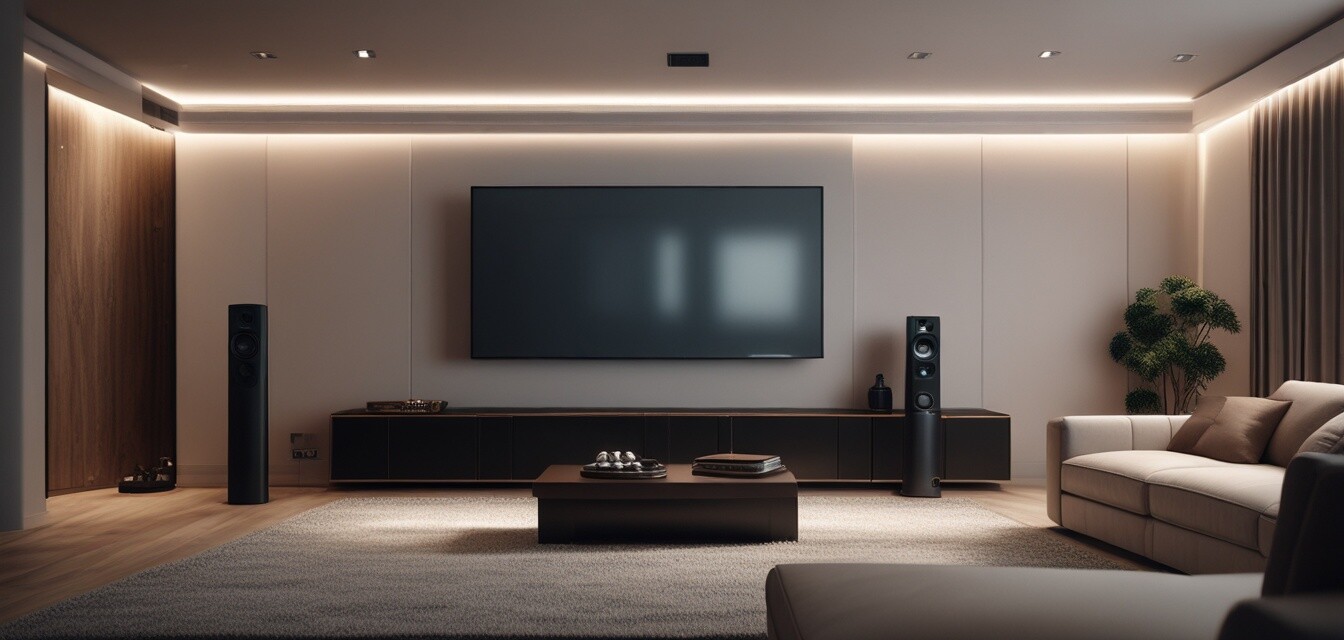
Selecting the Best AV Components for Home Theater
Key Takeaways
- Understanding the roles of different AV components is crucial for a successful home theater setup.
- Prioritize sound quality and clarity when selecting speakers.
- Choose a home theater receiver that supports the latest audio formats and has sufficient connectivity options.
- Consider the size and layout of your room when selecting a projector and screen.
- Integration with smart home systems can enhance the overall experience.
Creating the ultimate home theater experience is an exciting journey that starts with selecting the right Audio Visual (AV) components. This guide aims to help you navigate through the essential elements, from receivers to speakers, ensuring you make informed decisions for high-performance configurations that elevate your viewing experience.
Understanding AV Components
Before diving into the selection process, it's important to understand the primary AV components that form the backbone of any home theater system. Here's a brief overview:
| Component | Description | Importance |
|---|---|---|
| AV Receiver | A central hub that connects all audio and video sources. | Essential for sound processing and connectivity. |
| Speakers | Translates audio signals into sound. | Crucial for delivering high-quality audio. |
| Projector | Displays video content onto a screen. | Important for visual clarity and size. |
| Screen | A surface for projecting images. | Enhances picture quality and viewing experience. |
| Cables & Connectivity | Connects components together. | Ensures high-quality signal transmission. |
Choosing the Right AV Receiver
Your AV receiver is the heart of your home theater system. Here are critical features to consider while making your choice:
- Audio Formats: Look for receivers that support popular audio formats like Dolby Atmos and DTS:X for immersive sound.
- Connectivity Options: Ensure multiple HDMI ports, optical and coaxial inputs, and Bluetooth compatibility for future-proofing.
- Power Rating: Check the power output to match your speakers for optimal performance.
- Room Calibration: Some receivers come with calibration tools to optimize sound depending on room acoustics.
Selecting Speakers for Your Setup
When it comes to speakers, every model has unique characteristics to deliver sound. Consider these factors when choosing:
- Type: Choose between floor-standing, bookshelf, or satellite speakers based on your space.
- Sound Quality: Look for speakers with good frequency response and sound clarity.
- Brand Compatibility: Ensure that your speakers pair well with the selected AV receiver.
- Aesthetics: Choose colors and designs that blend well with your home decor.
Projectors and Screens: Viewing Experience Matters
The projector and screen significantly contribute to your home theater experience. Here are tips for choosing the right options:
- Resolution: Look for at least 1080p resolution for clear images. For higher-end setups, consider 4K.
- Brightness: Opt for projectors with higher lumens for better performance in various lighting conditions.
- Size: Select a screen size that complements your room dimensions. The viewing distance plays a crucial role in this choice.
- Screen Material: Choose materials that enhance color and contrast based on your projector type.
Smart Home Integration
Integrating your home theater with smart home systems can enhance control and convenience. Consider the following:
- Voice Control: Look for compatibility with voice assistants for hands-free operation.
- Mobile Apps: Select devices that offer mobile control for adjusting settings remotely.
- Home Automation: Integrate lights and curtains to create an immersive atmosphere.
Maintaining Optimal Performance
Once you've selected the ideal components for your home theater system, regular maintenance is key to enjoying consistent performance. Here are some maintenance tips:
- Keep components dust-free and well-ventilated.
- Perform software updates on receivers and other smart components.
- Test connections periodically to ensure optimal performance.
- Adjust speaker placement and settings as necessary to maintain sound quality.
Pros
- Enhanced audio and visual experiences with quality components.
- Ability to customize based on personal preferences.
- Future-proofing your setup with compatible devices and smart home integration.
Cons
- Initial investment can be high for quality components.
- Complex setups may require professional assistance.
- Regular maintenance can be time-consuming.
Conclusion
Choosing the right AV components is essential for a high-performance home theater system. By understanding the roles and importance of each element, including home theater receivers, speakers, and projectors, you can create an immersive experience that transforms your home entertainment. Additionally, incorporating smart home integration allows for greater convenience and enjoyment. Embrace the journey of building your ideal home theater, and relish the extraordinary viewings that await you!

